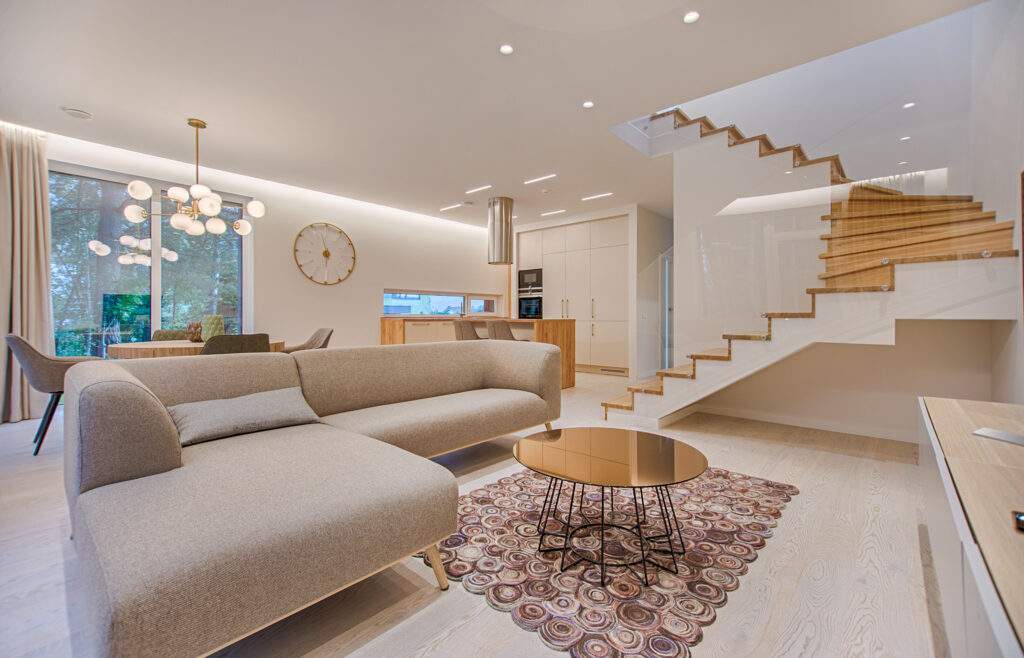One of the most effective ways to make a lasting impression on potential buyers is by staging your home strategically.
By carefully curating your space to highlight its best features and create an inviting atmosphere, you can create a compelling visual narrative that captures the imagination of prospective buyers.
In this article, we will explore a range of practical tips and expert advice to help you stage your home for sale, ensuring it stands out from the competition and entices buyers to envision themselves living in their dream home.
The importance of staging your home
Staging a home when selling is a crucial aspect of the real estate process. While some sellers may question the necessity of staging, it has been proven to have several significant benefits.
Here are some key reasons why staging is important when selling a home:
- Maximizes the visual appeal: Staging helps to showcase your home’s best features and create a positive first impression. By strategically arranging furniture, artwork, and decor, you can highlight the property’s potential and make it more visually appealing.
- Enhances perceived value: When a home is professionally staged, it can create a sense of luxury and value for potential buyers. Staging allows them to envision themselves living in the space and can make the property feel more desirable.
- Differentiates your home from the competition: In a competitive real estate market, staging can give your home a competitive edge. It helps your property stand out from similar listings and leaves a lasting impression on potential buyers.
- Expedites the sale process: Staging can help sell a home more quickly. When a property is staged effectively, it tends to spend less time on the market.
The cost of staging your home for sale
Home staging costs vary depending on the size of the home, the amount of staging required, and the location of the property.
Homeowners should expect to pay anywhere from $500 to $5,000 or more for home staging services. However, it’s essential to consider that these figures are subject to change due to various factors, including inflation, regional variations, and changes in the real estate market.
How to stage your home for sale
When preparing a home for sale, the objective is to showcase the property in its most favorable light. Homeowners should follow these essential steps and considerations when staging their home.
Decluttering and depersonalizing
The first step is to declutter and depersonalize the space. This involves removing unnecessary items, organizing belongings, and creating a clean and spacious atmosphere. It’s important to eliminate personal photographs and items, allowing potential buyers to envision themselves living in the home.
Cleaning and repairs
Next, thorough cleaning and repairs are crucial. The entire house should be meticulously cleaned, including floors, windows, walls, and fixtures. Address any necessary repairs, such as fixing leaky faucets, squeaky doors, or cracked tiles.
Maximize curb appeal
Enhancing curb appeal is another vital step when staging a home for sale. Maintaining a well-kept lawn, touching up paint if needed, and powerwashing the exterior are effective ways to create an inviting and attractive curb appeal.
Arrange furniture strategically
Arranging and optimizing furniture is another crucial aspect of staging. Homeowners should aim to create a flow and maximize space by arranging furniture strategically. Removing unnecessary or bulky items can make rooms appear more spacious. Creating functional and inviting spaces, such as a cozy reading nook or an inviting dining area, adds value to the home.
The bottom line
Staging your home for sale is a strategic and worthwhile investment of time and effort. Remember, first impressions matter, and by presenting your home with high-quality staging, you increase your chances of attracting serious buyers and achieving a successful sale.

